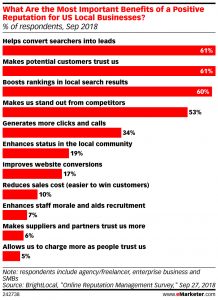Proceed with caution when it comes to bidding on a competitor’s brand terms – low-cost traffic may not be affordable when your brand’s reputation is on the line, and there are many factors to consider.
All is fair in love, war, and marketing. This mantra holds true, especially for how you outmaneuver your competition.
In a crowded marketplace, the survival of the marketing fittest determines who gets a market share and who is forced out of the market completely.
Consumers have options. You have solutions. Getting your products and services in front of them takes a strategic approach.
How are some health brands beating their competitors at their own game?
They’re bidding on their brand keywords.
Though this stealth marketing tactic could work when used the right way. It should be avoided at all costs.
It could help you steal traffic and positioning your brand in front of a larger audience, but the greater implications that could result make this a dangerous and potentially business-damaging marketing strategy.

With 64% of marketers using keywords of some sort to reach their consumers, health brands must take note…
Bidding on your competitor’s brand has a substantial upside, but it also has a significant inherent risk.
Customers may feel “tricked”.
Chances are good when a consumer types in a specific brand-related keyword, they are ready to make a purchase. By capturing this buy-ready market you could increase your conversions by simply being at the right place, at the right time. However, you need to also consider the consequences of a “bait and switch”.
For example, if a customer is searching for “Brand X organic health supplements” and your search engine ad appears marketing with “Just like Brand X organic health supplements”, customers may simply just go directly to your competitor’s website to buy and avoid the marketing confusion. Not to mention the disingenuous feel that this has for customers and it could set you up for some rather costly false advertising claims.
Greater visibility doesn’t always mean more brand awareness.
Bidding for brand keywords doesn’t guarantee that customers will buy from you because you appear higher on result pages, even if it increases your brand visibility.
Many companies may find creative ways to use their competitor’s brand keywords, but oftentimes it is not done in an accurate or authentic way. This puts your brand’s reputation at risk, and your reputation is one of the leading factors in driving sales.

If you do take the plunge and try this strategy, you should never use brand keywords that don’t accurately describe your product. Not only is this deceptive marketing, but it could introduce legal hurdles, especially in terms of making medical claims that you cannot substantiate.
Showcases your brand as an imposter.
As a new health brand it can be challenging to break out in the market. However, by finding and bidding on your closest competitors’ brands you can quickly broadcast your brand’s value proposition to consumers who likely would buy from you. But, this could have customers view you as a “knock off” or less credible version of what they’re looking for.
Proceed with Caution
If you’re looking for an easy way to drive, low-cost traffic, then bidding on competitor health brands could be an option to carefully look into. However, without the proper due diligence, you could be in for a costly and lengthy lawsuit. Not to mention the marketing backlash that will occur when your competitors get wind of what you’re doing and start bidding on your brand’s keywords. Trust me, this is a marketing war that’s not worth the money or the potential loss in market share when your competitors retaliate.
